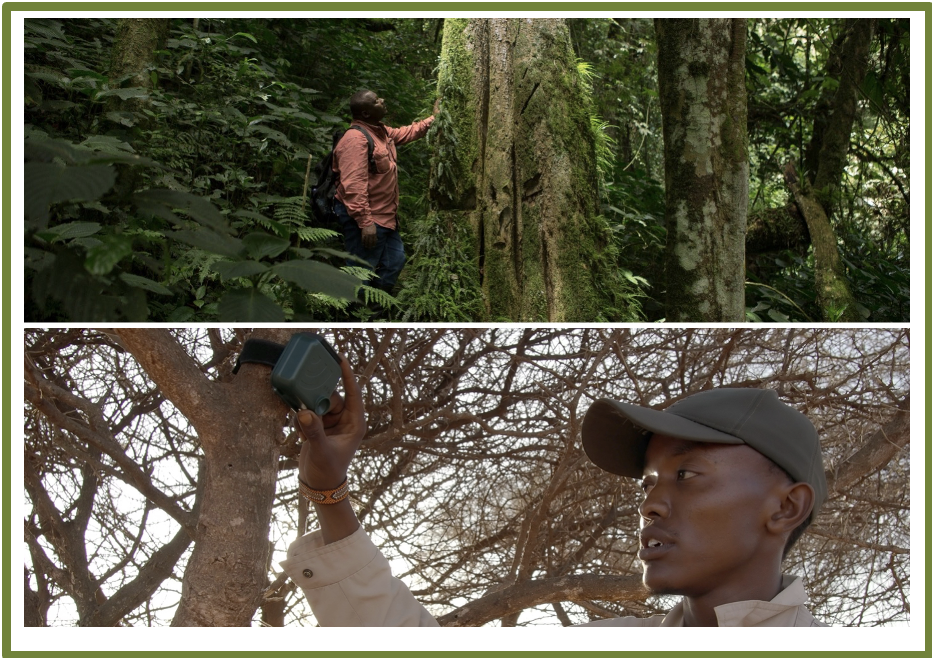JRS recently began implementation on two new grants, EarthAcre and Wild Earth Allies, to leverage strategic partnerships to expand biodiversity informatics capacity by building on local indigenous biodiversity knowledge. These grants will build on and complement existing community knowledge, creating repositories of biodiversity data and research skills for local stakeholders.
EarthAcre Inc (Kenya) – Building Community Capacity to Conduct Biodiversity Surveys Using Indigenous Knowledge and Data Technology to Conserve Critical Ecosystem Fragments
Indigenous-held conservancies are among the best protected conservation areas owing to effective traditional land stewardship practices. The biodiversity of these privately held areas are often under-studied however, with few surveys and incomplete species data records. EarthAcre proposes field research activities in two indigenous-managed sites located within critical ecosystems in Southern Kenya: The cloud forests of Wundanyi, Taita Taveta County and The Naretunoi

Conservancy. Both areas are located on smallholder indigenous lands managed by communities where data could greatly increase awareness and stimulate advocacy for protection of these unique ecosystems. Training of local communities to document species to demonstrate the unique and endangered biodiversity of each area will be fundamental to promote conservation.
Wild Earth Allies (D.R. Congo) – Understanding the ecological and socioeconomic importance of plants used by Batwa Indigenous Communities in upland Kahuzi-Biega National Park, Democratic Republic of the Congo (DRC) to inform habitat restoration
The overall project objective is to restore degraded areas in Kahuzi-Biega National Park (KBNP) and reduce extractive pressures in this critical national park by raising local capacity to establish multidisciplinary species inventories for insights into how forest composition and regeneration sustains biodiversity across taxa. The project will gather traditional knowledge through interviews with Indigenous Batwa community members to document useful plant species and those consumed by great apes living in and around KBNP. Shared data will inform habitat restoration best practices both in the park and in adjacent community areas and may serve to prioritize  planting of tree species with high socio-cultural value to improve local access to important natural resources that have become rare outside the national park and reduce pressure on forests within the park. To achieve these goals, the project will train government and community partners in data collection through botanical field research. The project will also compare assisted versus natural forest regeneration in the park by assessing species composition in areas undergoing active restoration versus in nearby areas undergoing passive regeneration.
planting of tree species with high socio-cultural value to improve local access to important natural resources that have become rare outside the national park and reduce pressure on forests within the park. To achieve these goals, the project will train government and community partners in data collection through botanical field research. The project will also compare assisted versus natural forest regeneration in the park by assessing species composition in areas undergoing active restoration versus in nearby areas undergoing passive regeneration.

